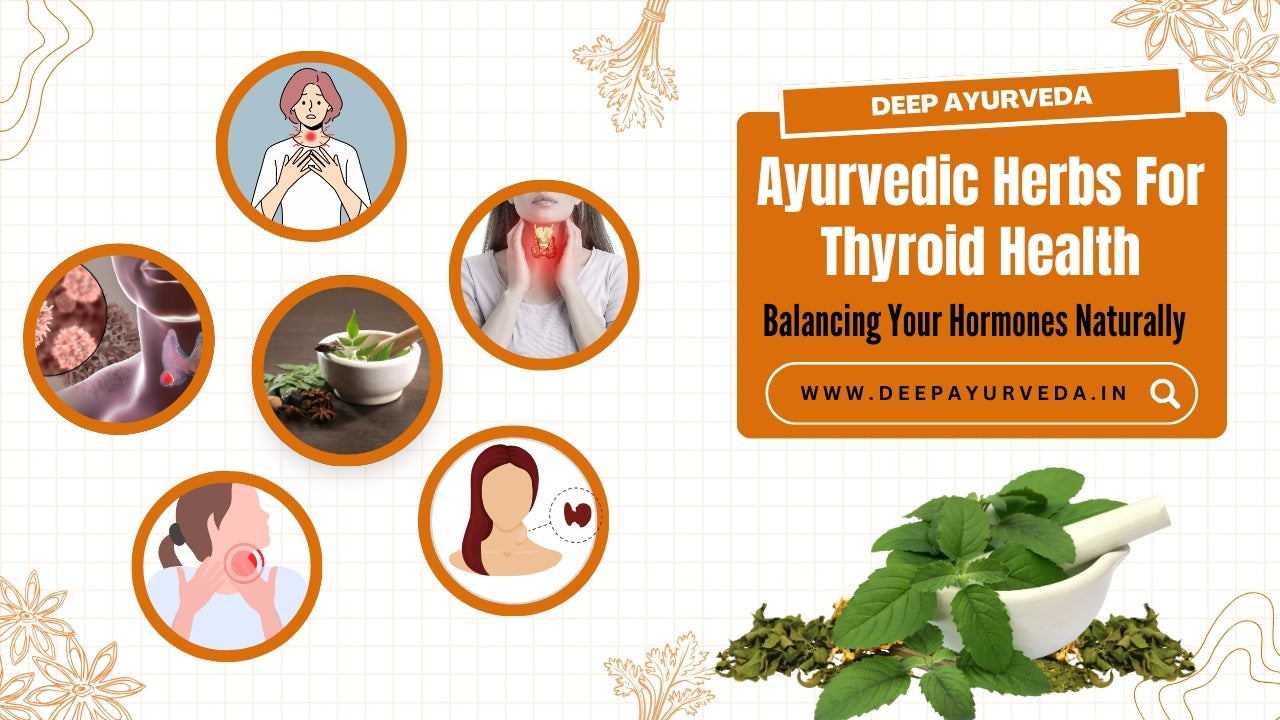Ayurveda, known as "the science of life," is one of the oldest holistic healing systems. Its origins in India date back over 5,000 years. This system combines body, spirit, and mind. At the heart of Ayurvedic medicine are Ayurvedic herbs, which are plants and plant-derived substances used to promote health, prevent disease, and enhance overall well-being.
In modern times, many seek alternatives to pharmaceutical treatments, turning instead to Ayurvedic herbal and natural products that promise safer, more natural solutions for their health. These natural herbal products are now widely available in the form of oils, teas, capsules, powders, and topical treatments, and they have proven to be effective for various conditions, from boosting immunity to improving skin health and more.
The Role of Ayurvedic Herbs in Health
Ayurvedic herbs are integral to the practice of Ayurveda because they are thought to work in harmony with the body’s natural processes. Unlike conventional medicine, which only targets specific symptoms, Ayurvedic herbs aim to restore balance and promote overall wellness by addressing the root causes of ailments. The following are some of the most commonly used Ayurvedic herbs and their benefits:
1. Ashwagandha:
-
Primary Uses: Stress reduction, energy boosting, and improving mental clarity.
- Details: Ashwagandha, often referred to as “Indian ginseng,” is one of the most popular herbs in Ayurveda due to its adaptogenic properties, meaning it helps the body cope with stress and promotes balance.
2. Turmeric:
-
Primary Uses: Anti-inflammatory, antioxidant, and joint health.
- Details: Turmeric contains curcumin, a powerful compound known for its anti-inflammatory and antioxidant properties. It is commonly used in Ayurveda to treat arthritis, digestive issues, and skin conditions such as eczema or psoriasis.
3. Tulsi (Holy Basil):
Primary Uses: Immune support, stress relief, and respiratory health.
Details: It is known as the "Queen of Herbs," Tulsi is revered in Ayurveda for its adaptogenic properties. It is considered a powerful herb for boosting immunity, reducing stress, and promoting respiratory health.
4. Amla
-
Primary Uses: Immunity boost, skin health, and digestive aid.
- Details: Amla is one of the richest natural sources of vitamin C and antioxidants, making it incredibly beneficial for boosting the immune system.
5. Neem:
-
Primary Uses: Skin health, detoxification, and anti-inflammatory.
- Details: Neem has been used for centuries to treat skin problems like acne, eczema, and psoriasis. It has antibacterial, antifungal, and antiviral properties that help fight infections.
6. Brahmi:
-
Primary Uses: Cognitive function, memory enhancement, and anxiety relief.
- Details: Brahmi is a powerful herb known for its ability to improve cognitive function, memory, and concentration. It is used to relieve stress, anxiety, and insomnia.
Ayurvedic Herbal and Natural Products in Modern Times
With the rising demand for natural health solutions, Ayurvedic herbal and natural products have gained immense popularity in the global wellness industry. People are increasingly choosing these natural products over synthetic alternatives to avoid harmful chemicals and side effects. Ayurvedic herbs are now incorporated into various forms, including:
● Herbal Teas and Infusions: These teas, made from herbs like ginger, tulsi, or chamomile, are perfect for improving digestion, reducing stress, and boosting immunity.
● Essential Oils: Ayurvedic oils such as sesame oil, coconut oil, and almond oil are often infused with herbs like ashwagandha and Brahmi to create healing oils that promote skin health and relaxation.
● Supplements and Capsules: Ayurvedic supplements, including turmeric capsules, amla powder, and ashwagandha, are commonly used for daily health support, providing a convenient way to incorporate these powerful herbs into your routine.
● Topical Products: Ayurvedic lotions, balms, and face masks are formulated with herbs like neem and turmeric to treat various skin conditions such as acne, scars, and wrinkles.
These natural herbal products are effective for treating specific ailments and also serve as a preventive measure to maintain overall health. Ayurvedic formulations are designed to balance the body’s doshas (vata, pitta, and kapha) and promote wellness from within.
How to Incorporate Ayurvedic Herbs into Your Life
1. Daily Supplementation: Adding Ayurvedic herbs like ashwagandha, turmeric, or amla in supplement form can help maintain energy levels, boost immunity, and support mental clarity.
2. Herbal Teas: Drinking herbal teas made from tulsi, ginger, or cinnamon can provide digestive benefits, relieve stress, and support overall well-being.
3. Topical Applications: Using Ayurvedic oils or creams for skincare, especially those with neem or turmeric, can help treat skin issues and enhance complexion.
4. Dietary Integration: Incorporating herbs like turmeric, coriander, or cumin into your daily meals can improve digestion and provide anti-inflammatory benefits.
Conclusion
Ayurvedic herbs, rooted in ancient wisdom, offer a holistic approach to health by balancing the body, mind, and spirit. With their adaptogenic, anti-inflammatory, and antioxidant properties, herbs like Ashwagandha, Turmeric, and Amla support immunity, cognitive function, skin health, and more. In modern times, Ayurvedic herbal products are gaining popularity for their natural, safe, and effective health benefits, making them a valuable addition to daily wellness routines.
FAQ’s
1. Can Ayurvedic herbs cure chronic diseases?
Yes, it do cure.
2. Are there side effects of Ayurvedic herbs?
No, there is no any side effect.
3. How long does it take for Ayurvedic herbs to work?
It take around 3 to 6 months.







